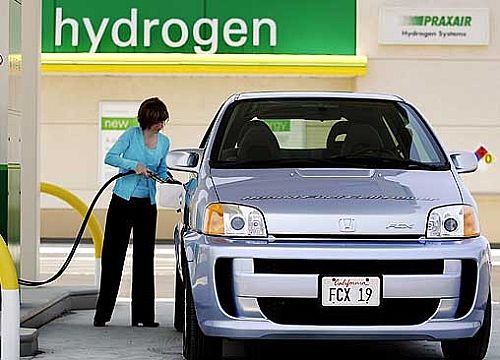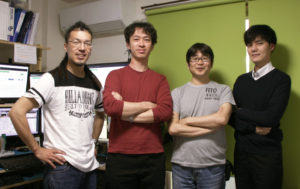Honda and Toyota Getting More Aggressive With Hydrogen Fuel Cell Future
Hydrogen fuel cell cars have had a surprisingly controversial history. Ultimately, it comes down to a weird pseudo-rivalry between HFCs and EVs…
On the one hand, you have brands like Toyota who’ve been very aggressive from the start that H2 cars are the future of the automotive industry. They’ll cite the built-in advantages that come with hydrogen, such as gasoline-like range, more power, and a more convenient refueling time, in addition to zero-emissions and infinite renewability.
However, on the other hand you have brands like Tesla, who’s CEO swears that hydrogen technology is a dead-end, and that EVs will dominate the near future of the automotive world because of cheaper development costs and current technology.
Now, regular readers will know that we’ve talked quite a bit about the Nissan Leaf, as well as a couple other Japanese all-electric cars over the past few months. So, today we thought it’d be a good idea to check-in on the other side of the argument and identify where our favorite Japanese brands stand in their progress towards HFC viability. More specifically, we’re going to discuss two recent developments from Toyota and Honda.
Honda & GM’s Definitive Master Agreement
On Tuesday of this week, it was officially announced that Honda and GM would be partnering up with a brand-new “definitive master agreement to co-develop next-generation fuel-cell systems and hydrogen storage technologies.”
Quite a mouth-full. To give you a basic rundown of the press release, both GM and Honda recognize that to some degree, the skeptics are right. Hydrogen technology IS expensive, and development WILL take longer simply because of the complex nature of a viable H2 solution. So, the two powerhouse automakers are partnering up to share expertise, leverage economies of scale, and eventually utilize common manufacturing strategies.
Specifically, this master alliance aims to accelerate the development of a widespread refueling system, which stands as one of the biggest hurdles to the widespread use of hydrogen. One of the key ways they’ll do this is through improved hydrogen storage, which currently inhibits the acquisition of commercial hydrogen. Both automakers desire to implement these new technologies by 2020.
But, as promising as this new alliance sounds, there’s one Japanese brand that’s getting even more aggressive, and it’s doing so all by itself.
Toyota Bringing 2015 Lexus FCV-R to 2013 Tokyo Motor Show
Last week, Bloomberg filled us in on a few juicy details regarding Toyota’s promised 2015 hydrogen car. Since we haven’t heard very much about it up to this point, we’re pretty excited to delve a little deeper into Toyota’s plans.
So, here’s what we now know:
* Toyota’s first HFC vehicle will be a Lexus sedan
* It will cost between $50,000 and $100,000
* It will offer a range of 300 miles
* We will definitely see a concept at this year’s Tokyo Motor Show
* We might see a production model in 2014, labeled as a 2015MY
As you can see, the future is getting closer. These next five years seem like they’ll be make-or-break time for hydrogen advocates everywhere, as commercial production becomes more and more viable. 2020 will mark roughly 25 years of dedicated HFC development, depending on which brand you’re looking at, and if the cars aren’t getting competitive by then, chances are the technology really is a dead-end.
As always, thanks for reading, and we’d love to hear your own thoughts, comments and opinions below.
Sources: Autoblog Green, Bloomberg, Carscoops, Autoblog Green



